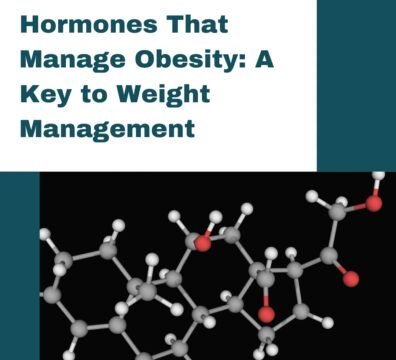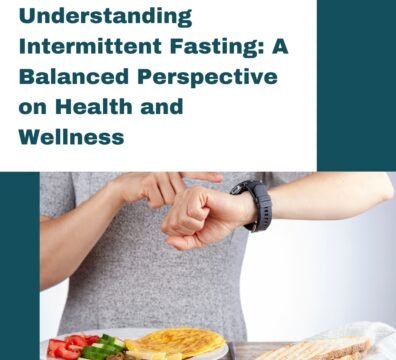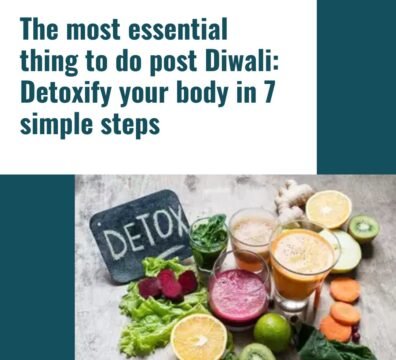
Lifestyle Management Consultant
About The Program
Lifestyle management is about how you live your life and the choices you make every day. It includes things like what you eat, how much you exercise, how well you sleep, and how you manage stress. When your lifestyle is disturbed or changes abruptly, it can lead to various problems.
- . For example, an unhealthy diet and lack of exercise can cause weight gain and increase the risk of diseases like diabetes and heart problems. Poor sleep patterns can lead to fatigue and mood swings, affecting your mental health. Excessive stress can harm your overall well-being and lead to conditions like anxiety and high blood pressure.
- Proper nutrition and guidance play a significant role in managing and improving your lifestyle. Eating a balanced diet with fruits, vegetables, lean proteins, and whole grains can help you maintain a healthy weight and prevent chronic diseases. Regular exercise can boost your energy levels and mood. Adequate sleep is essential for physical and mental recovery. Stress management techniques like meditation and relaxation can reduce stress's negative effects.
- By making healthier choices and seeking guidance when needed, you can positively impact your lifestyle, prevent problems, and lead a happier, more fulfilling life. Lifestyle management isn't about perfection; it's about making gradual improvements that work for you and your unique needs.

Liver
Lifestyle changes can affect your liver, leading to common liver issues like fatty liver disease, alcoholic liver disease, and viral hepatitis. These problems can harm your whole body.
- Fatty Liver Disease: Caused by an unhealthy diet and lack of exercise, it can lead to liver inflammation and scarring, harming your liver.
Alcoholic Liver Disease: Heavy drinking damages the liver over time, potentially causing liver failure.
Viral Hepatitis: Viruses like hepatitis B and C can harm your liver, spreading through risky behaviors like sharing needles or unprotected sex. - Liver issues don't just hurt your liver; they can impact your whole body. Symptoms may include fatigue, yellowing of the skin, and abdominal pain. They can lead to serious complications, like liver cancer.
- To help your liver, proper nutrition is key. Eat plenty of fruits, veggies, and whole grains, and limit fatty and sugary foods. Avoid excessive alcohol, and if you have liver disease, your doctor may recommend a specific diet. Staying hydrated is essential, and maintaining a healthy weight through diet and exercise can protect your liver. Night jobs can disrupt your liver health due to irregular sleep patterns and unhealthy eating habits. Lack of sleep and eating at odd hours can stress the liver and worsen liver problems. It's crucial for night shift workers to prioritize good nutrition and establish a consistent sleep schedule to support liver health and overall well-being.

Gut Health
Lifestyle changes can affect gut health, leading to common digestive issues like irritable bowel syndrome (IBS), acid reflux, and constipation, which can have far-reaching effects on the body.
- Irritable Bowel Syndrome (IBS): Stress, poor diet, and irregular eating habits can trigger IBS, causing stomach pain, bloating, and changes in bowel habits. It can disrupt daily life.Acid Reflux: Unhealthy eating habits, especially consuming spicy foods and overeating, can cause acid reflux. It leads to heartburn and discomfort as stomach acid flows back into the esophagus.
- Constipation: A diet lacking fiber and fluids, combined with inactivity, can lead to constipation, causing difficulty in passing stools and discomfort.
- Gut problems don't just stay in the stomach; they can impact overall health. Chronic gut issues can lead to malnutrition, fatigue, and even mood swings due to the gut-brain connection.
- Night jobs can worsen gut problems due to disrupted sleep patterns and unhealthy eating habits. Irregular sleep can lead to fatigue and raise stress hormones, straining the gut. Late-night eating and poor food choices can contribute to weight gain and gut problems.
- To maintain gut health, it's crucial to adopt a balanced diet with plenty of fiber-rich foods, stay hydrated, manage stress, and establish regular eating and sleeping patterns. For night shift workers, maintaining a consistent sleep schedule and making healthy eating choices are essential to minimize the impact on gut health and overall well-being.

Kidney
Lifestyle changes can significantly affect kidney health, leading to common kidney problems like kidney stones, high blood pressure, and kidney disease, which can have widespread impacts on the body.
- Kidney Stones: Not drinking enough water and having a diet high in salt and certain foods can cause kidney stones. These are painful, hard deposits that can block urine flow and damage the kidneys.
- High Blood Pressure: An unhealthy lifestyle, including a diet high in sodium, lack of exercise, and excessive alcohol consumption, can lead to high blood pressure. Over time, high blood pressure can damage the kidneys and increase the risk of kidney disease.
- Kidney Disease: Uncontrolled diabetes and high blood pressure, often a result of poor lifestyle choices, are leading causes of kidney disease. Kidney disease can progress silently and, if not managed, may lead to kidney failure, requiring dialysis or transplantation.
- Night jobs can contribute to kidney issues due to disrupted sleep patterns, increased stress, and unhealthy eating habits. Irregular sleep can stress the body, potentially impacting blood pressure and kidney function. Late-night eating can worsen kidney problems.
- Kidney problems don't just affect the kidneys; they can harm overall health. Reduced blood flow can harm other organs, and kidney disease is a leading cause of strokes.
- To protect kidney health, it's crucial to maintain a balanced diet, drink plenty of water, exercise regularly, quit smoking, manage stress, and monitor blood pressure. For night shift workers, establishing a consistent sleep schedule, staying hydrated, and making healthy eating choices are vital to minimize the impact on kidney health and overall well-being.

Heart Health
Lifestyle changes can have a big impact on heart health, leading to common heart problems like coronary artery disease (CAD), high blood pressure, and heart failure, which can affect the entire body.
- Coronary Artery Disease (CAD): Unhealthy habits like a poor diet, lack of exercise, and smoking can cause CAD. It's when the arteries that supply blood to the heart become blocked or narrowed, increasing the risk of heart attacks.
- High Blood Pressure: An unhealthy lifestyle, especially high salt intake, lack of physical activity, and obesity, can cause high blood pressure. This condition puts extra strain on the heart and increases the risk of heart disease.
- Heart Failure: Conditions like untreated high blood pressure or CAD can lead to heart failure. This means the heart can't pump blood effectively, causing fatigue, shortness of breath, and swelling in the legs.
- Heart problems don't just affect the heart; they can impact the entire body. Reduced blood flow can harm organs, and heart disease is a leading cause of strokes.
- Night jobs can contribute to heart issues due to disrupted sleep patterns, increased stress, and unhealthy eating habits. Irregular sleep can lead to mood swings and cognitive difficulties. Late-night eating and poor food choices can contribute to weight gain and heart problems.
To protect heart health, it's important to maintain a healthy diet, exercise regularly, quit smoking, manage stress, and monitor blood pressure. For night shift workers, establishing a consistent sleep schedule and making healthy eating choices are crucial steps to minimize the impact on heart health and overall well-being.

Mental Health
Lifestyle changes can have a profound impact on mental health, leading to common mental health issues like stress, anxiety, and depression, which can affect the whole body.
- Stress: Unhealthy lifestyles, including excessive work pressure, poor time management, and financial worries, can lead to chronic stress. It can trigger physical symptoms like headaches, digestive problems, and sleep disturbances.
- Anxiety: Irregular sleep patterns, poor nutrition, and a lack of exercise can contribute to anxiety. It can cause symptoms like constant worry, restlessness, and muscle tension.
Depression: Unhealthy habits, such as a sedentary lifestyle, social isolation, and poor nutrition, can increase the risk of depression. Depression can lead to physical symptoms like fatigue, changes in appetite, and body aches. - Mental health issues don't only affect the mind; they can impact the entire body. Chronic stress can weaken the immune system, making the body more susceptible to illnesses. Anxiety and depression can lead to changes in appetite and weight, affecting overall health.
- Night jobs can worsen mental health problems due to disrupted sleep patterns, social isolation, and unhealthy eating habits. Irregular sleep can contribute to mood swings and cognitive difficulties. Night workers often have less social interaction, which can lead to feelings of loneliness and depression.
- To protect mental health, it's crucial to establish a balanced lifestyle, get enough sleep, engage in physical activity, maintain social connections, and seek help if needed. For night shift workers, maintaining a consistent sleep schedule, staying connected with loved ones, and practicing stress management techniques are vital for preserving mental well-being and overall health.

Detox
Detox, short for detoxification, is a process where you cleanse your body to remove harmful substances and toxins. It's important to do it from time to time to help your body function better and stay healthy.
- Detox is vital because we're exposed to toxins every day from the food we eat, the air we breathe, and the things we touch. These toxins can build up in our bodies and cause various health problems over time.
If you don't detox regularly, these toxins can harm your organs, weaken your immune system, and lead to issues like fatigue, headaches, and skin problems. They can even increase the risk of chronic diseases. - There are different ways to detox. One common method is drinking plenty of water to flush out toxins through urine. Eating a diet rich in fruits, vegetables, and fiber also helps. Some people do juice cleanses, where they only drink fresh fruit and vegetable juices for a few days.
- Certain ingredients are useful in detoxifying the body. Lemon and ginger in warm water can aid digestion and cleanse the liver. Green tea has antioxidants that help remove toxins. Fiber-rich foods like oats and apples can promote regular bowel movements, which is another way the body rids itself of waste.
- In summary, detoxification is the process of removing harmful substances from the body. It's essential to do it periodically to maintain good health, as the buildup of toxins can lead to various health problems. Drinking water, eating a healthy diet, and incorporating detoxifying ingredients can support this process and keep your body functioning at its best.
What we provide in Diet plans?
-
One on One consultation with
our expert nutritionist. -
Personalised Diets & Support
throughout the plan. -
Guidance on Lifestyle
Management. -
Support from the team
( 9 AM to 8 PM) on WhatsApp


Regain Your Health
Unlock the nutritional power with our experts for a healthier life
Posted onTrustindex verifies that the original source of the review is Google. I took Fit andCure’s nutritional program for my teenager son who’s very active in sports. We reside in UAE. Our nutritionalist - Arushi, customized a plan that really boosted his stamina. Her knowledge and attention to detail were outstanding, and she was always available to answer questions and offer encouragement. The results have been fantastic, and we couldn’t be happier with her guidance! I highly recommend Fit and Cure’s nutritional program for young athletes!Posted onTrustindex verifies that the original source of the review is Google. Arushi is a wonderful nutritionist and a god sent angel for my family and friends. She has a very holistic approach when it comes to nutrition. I love the way how she patiently explains about food and nutrition. She will listen to all your queries patiently with great attention to detail and often addressing questions before they were asked. Her meal plans are simple and doable from ingredients easily available in the kitchen. She goes above and beyond as a nutritionist which is very kind of her. She reaches out immediately to all my doubts or difficulties. She will be there 24*7. I will definitely be consulting her, multiple times. Thank you Arushi for taking care of us like a family member. Blessed to have met you.Posted onTrustindex verifies that the original source of the review is Google. As a 14-year-old badminton athlete, I reached out to fitandcure team for help with my liver health, and the results have been amazing! They tailored a plan that not only supported my liver but also boosted my energy levels for training and matches. The diet was easy to follow and worked perfectly with my intense athletic schedule. I’ve noticed a significant improvement in my performance and overall well-being. I highly recommend fitandcyre to young athletes looking for expert nutrition guidance!Posted onTrustindex verifies that the original source of the review is Google. I worked with fitandcure team to improve my liver health, and the results were incredible! They created a personalized plan focusing on liver-friendly foods that were easy to incorporate into my routine. Within weeks, I felt more energized and noticed improvements in my overall health. The ongoing support and expert guidance made the entire process simple and manageable. I highly recommend Arushi sharma for anyone looking to improve their liver health naturally!Posted onTrustindex verifies that the original source of the review is Google. I recently took a weight loss program with fitandcure, and I am beyond satisfied with the results! From day one, they took the time to understand my lifestyle, preferences, and goals, providing me with a customized meal plan that was easy to follow and tailored to my needs. What I loved most was how sustainable the plan was—no extreme dieting, just balanced nutrition that helped me lose weight while feeling energized. The weekly check-ins and constant support made all the difference, keeping me motivated and accountable. I highly recommend fitandcure team to anyone looking for a healthy and effective way to lose weight. It was a life-changing experience!Posted onTrustindex verifies that the original source of the review is Google. I took food plans for my mother who got a blood test done recently. A few parameters were not good like thyroid and HbA1c, so I consulted fitandcure and they made it so easy without medicine and now my mother feels good and follows a healthy lifestyle. Also, her deranged parameters are now normal.Posted onTrustindex verifies that the original source of the review is Google. For the last 1.5 years I have been facing acid reflux problems. I tried going to various doctors and had many medicines but nothing helped. I came across furniture who really changed the game. They really helped me cure my gut issues, improvement by reflux issues and made me understand the basic things which help me correct my condition. Today, I am free from medicines and can lead a healthy life by managing my diet and lifestyle. Thanks a lot fit&curePosted onTrustindex verifies that the original source of the review is Google. FitandCure have some amazing and knowledgeable experts and Ms. Arushi is fantastic! She created a personalized plan that fit my lifestyle perfectly, and the results have been amazing. Her knowledge and genuine care made the whole process enjoyable and easy to follow. I’m feeling healthier, more energized, and couldn’t be happier with the guidance I received. Highly recommend!Posted onTrustindex verifies that the original source of the review is Google. Arushi has been incredible throughout my father’s cancer journey. Her care didn’t stop with just treatment — she stayed supportive even after, always checking in. She truly listened and showed real empathy. My family couldn’t have asked for better support.Posted onTrustindex verifies that the original source of the review is Google. Fitandcure are really great professionals, they know their job very well. They understand the needs of the customers and guide them in the right way. The best part is that they connect with you like a family member. I am an athlete and they have been working with me for the last one month and I am getting really good results in my weight loss journey without going to the gym, apart from this they are also guiding me to get good results in my sports so that I can achieve my goal. I am happy with them.
Types of Consultation
Consultation With Fit&Cure
- 1. Consultation Per Week By Expert
- 2. Follow-ups-in Our Groups
- 3.Personalized Diet Plans Permonth
- Constant 9 am - 9 pm WhatsApp support
Blogs
Hormones That Manage Obesity: A Key to Weight Management
Hormones That Manage Obesity: A Key to Weight Management Obesity is a complex health condition influenced by various factors, including genetics, lifestyle, and hormonal imbalances.…
Understanding Intermittent Fasting: A Balanced Perspective on Health and Wellness
Intermittent fasting (IF) has garnered attention as a trend in weight management and overall health. It emphasizes when to eat rather than what to eat,…
The most essential thing to do post Diwali: Detoxify your body in 7 simple steps
Diwali is a festival of light and happiness and it is often associated with parties, get-togethers, binge eating, not following a proper routine, sleep-less nights,…
FAQs
Nutrition is the science behind food and how our bodies use it. It is essential for overall health, providing the energy and nutrients needed for growth, repair, and maintenance.
Start by incorporating a variety of fruits, vegetables, lean proteins, whole grains, and healthy fats into your meals. Limit processed foods, sugar, and excessive salt intake.
A balanced diet includes a mix of carbohydrates, proteins, fats, vitamins, and minerals in appropriate proportions to meet your body's needs. Including water in the right quantity is an equally important concept that needs to be considered when we talk about balanced nutrition.
The calorie needs differ from person to person based on various factors such as age, gender, activity level, and other factors. It is best to consult a nutritionist in order to understand the specific daily calorie requirement for an individual.
Macronutrients include carbohydrates, proteins, and fats, which provide energy (e.g., whole grains, pulses and legumes, nuts and seeds, etc.). Micronutrients are vitamins and minerals that support various bodily functions (various fruits and vegetables).
Complex carbohydrates (e.g., whole grains, and vegetables) provide sustained energy, while simple carbohydrates (e.g., sugar) offer quick energy but can lead to energy crashes.
No, not all fats are bad. Healthy fats, like those found in avocados, nuts, seeds, fish and olive oil, can be beneficial for your health when consumed in moderation.
Focus on creating a calorie deficit through a balanced diet and regular physical activity. Crash diet and extreme restrictions are not recommended. Such diets can be fatal to health.
Plant-based protein sources include beans, lentils, tofu, tempeh, nuts, seeds, and quinoa. Dairy alternatives, cereal–pulse combinations, and protein-rich vegetables such as spinach, potatoes, asparagus, broccoli, and sweet potatoes also contribute.
Pay attention to serving sizes, calories, macronutrients, and the ingredient list. Look for low-added sugar and prioritize whole, unprocessed foods.
Yes, nutrition plays a crucial role in managing conditions like diabetes, heart disease, and obesity. However, it is important to consult a healthcare professional or an expert dietitian for personalized advice.
Supplements should not replace a balanced diet. They may be necessary for specific nutrient deficiencies, but it's best to consult a healthcare provider before taking them.
Consider consulting a dietitian who can assess your individual needs and provide tailored guidance based on your goals and health status.
Plan meals, buy in bulk, opt for seasonal produce, and minimize food waste. Explore affordable protein sources like beans and legumes.
Our website offers a variety of nutritious recipes tailored to different dietary preferences and needs. Browse our recipe section for ideas.
Children need a balanced diet with plenty of fruits, vegetables, whole grains, lean proteins, and dairy or dairy alternatives. We need to limit the intake of sugar-based snacks, processed foods, and processed and preserved drinks.
Make healthy foods appealing, involve kids in meal planning and preparation, and be a role model by eating nutritious foods yourself.
Certain nutrients and dietary choices can influence hormone balance. Consult a healthcare professional or dietitian for personalized guidance.
Men should focus on a diet rich in fruits, vegetables, whole grains, lean proteins, and healthy fats to support overall health and prevent chronic conditions.
Yes, diet can play a role in fertility. Maintaining a healthy weight and consuming key nutrients like zinc and antioxidants may enhance fertility in men. Consult a healthcare professional or dietitian for personalized guidance.
Proper nutrition can help regulate menstrual cycles, manage PMS, and support hormonal balance during menstruation and during menopause. Consult a healthcare professional or dietitian for personalized guidance.
Yes, pregnant and lactating women require additional nutrients like folic acid, iron, and calcium. As it is a period of rapid growth and development, it is best to consult a healthcare provider or a dietitian for personalized nutrition advice.
Blogs
How to Make Fasting Food Healthier and More Nutritious
Fasting during religious festivals like Navratri is a time of spiritual and physical cleansing. However, many people end up consuming deep-fried, sugar-laden, and high-carb foods…
Le concept client constitue sur le c?ur pour la pratique mobile de GameTwist
La recherche Jack Top casino en ligne aimante appuie l’apprehension ou se decider du jeu, , l’interface immacule ou purifiee bonifie l’accrod vos competiteurs. Le…





